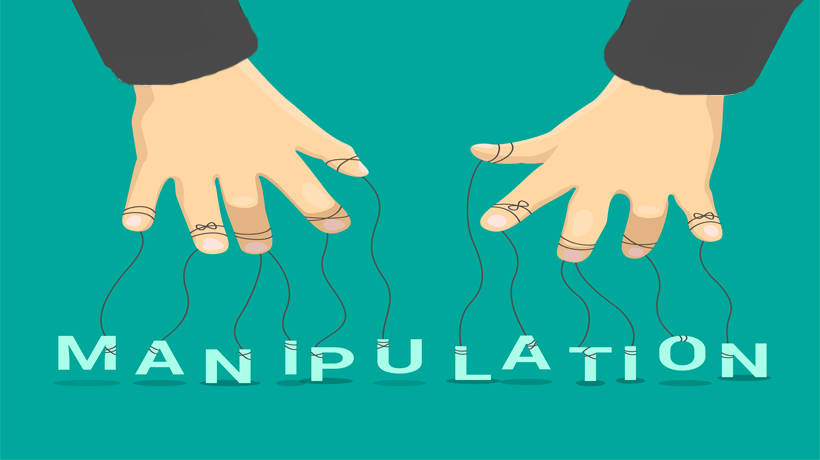A manipulative personality disorder is a condition that affects how someone behaves in relationships. People with this disorder often use manipulation and deceit to get what they want. They may be very charming and persuasive when they want something, but can also be very abusive and destructive if they don’t get their way. If you think you or someone you know may have a manipulative personality disorder, it’s important to learn about the signs and symptoms so that you can get help. In this blog post, we will discuss what manipulative personality disorder is, how to spot it, and what to do about it.
Contents
- 1 What Is Manipulative Personality Disorder?
- 2 Stages of Manipulative Personality Disorder
- 3 How to Spot Manipulative Personality Disorder?
- 4 Reasons For Manipulative Personality Disorder
- 5 Consequences Of Manipulative Personality Disorder
- 6 Treatments For Manipulative Personality Disorder
- 7 Dealing With Manipulative Personality Disorder
- 8 Conclusion
- 9 A Word From Therapy Mantra
What Is Manipulative Personality Disorder?
 A manipulative personality disorder is a mental disorder that causes people to manipulate others for their own gain. People with this disorder are often very charming and personable, making them seem like they’re easy to get along with. But behind their facade, they’re experts at manipulation and control.
A manipulative personality disorder is a mental disorder that causes people to manipulate others for their own gain. People with this disorder are often very charming and personable, making them seem like they’re easy to get along with. But behind their facade, they’re experts at manipulation and control.
This disorder also causes people to be extremely selfish and self-centered. They’re always looking for ways to get what they want, even if it means hurting others. And they’re often very good at lying and manipulation. There are several different types of manipulative personality disorders, but all of them share these common symptoms.
Stages of Manipulative Personality Disorder

The stages of manipulative personality disorder are:
Stage one: early signs and symptoms. This is when people with the disorder first start to manipulate and control others. They may do this in small ways, such as lying or being overly critical.
Stage two: full-blown manipulative behavior. During this stage, people with the disorder become more manipulative and controlling. They may start to use manipulation and control to get what they want from others.
Stage three: serious consequences. This is when the consequences of manipulative behavior start to take effect. People with the disorder may lose friends, damage their relationships, or get into legal trouble because of their manipulative behavior.
How to Spot Manipulative Personality Disorder?

If you’re suspicious that someone you know has a manipulative personality disorder, there are some telltale signs to look for. Here are some red flags:
Controlling Nature
There are several ways manipulative people try to control those around them. They might try to control the conversation by interrupting others or talking over them. They might also make demands of others and expect them to be met without any negotiation.
Manipulative people also like to play games with other people’s emotions. They might say things that they know will upset someone or make them feel guilty. And they often use flattery and compliments to manipulate others into doing what they want.
Lack of Empathy
Manipulative people often lack empathy for others. This means that they’re not able to understand how someone else is feeling. Instead, they only think about their own needs and wants. As a result, they’re often insensitive to the feelings of those around them. Sometimes there maybe be a history of them not being there for others during tough times. It also means sometimes that they might take advantage of others emotionally.
Not Respecting Boundaries
There are two types of boundaries-physical and emotional. Manipulative people often don’t respect either type of boundary. They might invade your personal space or touch you without your consent. They might also pry into your personal life and ask you invasive questions.
Emotional manipulative people will try to control how you’re feeling. They might gaslight you or make you feel guilty for things that aren’t your fault. They might also play mind games with you or try to manipulate you into doing what they want.
Twisting Facts
Facts and reality often don’t matter to manipulative people. They’re more concerned with how they can twist the truth to suit their needs. For example, they might lie about what happened in a situation or try to make someone else look bad. They might also distort the facts to make themselves look better. Sometimes, they might even believe their own lies.
Making Excuses
People with manipulative personality disorder are often quick to make excuses. They might blame their behavior on someone else or try to make it seem like it’s not a big deal. They might also try to downplay the severity of their actions. For example, they might say that they only hit you because you made them angry. Sometimes, they might even try to make you feel like you’re the one who’s being manipulative.
Constantly Making You Feel Sorry
It also seems like they’re always making you feel sorry for them. They might play the victim card or make you feel guilty for things that aren’t your fault. This is often done in an attempt to get sympathy or get what they want from you. There are often times when they might even fake being sorry just to get what they want. There are also times when they might use their emotions to manipulate you. For example, they might cry or get angry in order to get what they want from you.
Accountability Issues
People may have difficulty holding manipulative people accountable for their actions. This is because they’re often quick to make excuses or blame others for their behavior. They might also try to downplay the severity of their actions. As a result, it’s often difficult to get them to take responsibility for their own behavior. There are also times when they might try to shift the blame onto you.
Reasons For Manipulative Personality Disorder

There are many possible reasons for manipulative personality disorder. Some of these are:
Dysfunctional Family
Sometimes there are family dynamics that can contribute to the development of manipulative personality disorder. For example, if someone grows up in a family where manipulation is used to get what they want, they’re more likely to use manipulation themselves. Sometimes there might also be a history of abuse or neglect. In these types of families, children might learn that manipulation is the only way to get what they want.
Low Self-Esteem
People with low self-esteem are often more likely to manipulate others. This is because they might feel like they’re not good enough and that they have to resort to manipulative behavior in order to get what they want. They might also believe that manipulation is the only way to get people to pay attention to them. There are also times when low self-esteem can be a result of manipulation. For example, if someone is constantly made to feel guilty or inferior, they might start to believe that they are indeed unworthy.
Invalidation
People who have been invalidated often resort to manipulative behavior. This is because they might feel like their needs are never met and that they have to resort to manipulation in order to get what they want. Invalidation can come from many sources, such as family, friends, or even society. It’s often the result of not having your feelings or needs respected. When you’re invalidated, you might start to believe that you’re not worth anything and that the only way to get what you want is through manipulation.
Unmet Needs
There are often times when people manipulate others because their own needs aren’t being met. For example, if someone isn’t getting the love or attention they need, they might try to manipulate those around them into giving it to them. Sometimes, people might also manipulate others in order to get their own needs met. For example, if someone is manipulating you into doing something for them.
Trauma
Sometimes people develop manipulative personality disorder as a way to cope with trauma. For example, if someone was sexually abused as a child, they might use manipulation to try and control their environment. This is often done in an attempt to avoid being hurt again. Sometimes there are also people who have been through other traumas, such as natural disasters or war. These types of experiences can often lead to the development of manipulative personality disorder.
Neglect
Neglect is often a major factor in the development of manipulative personality disorder. This is because when you’re neglected, you might not get your emotional needs met. As a result, you might start to believe that the only way to get what you want is through manipulation. There are also times when neglect can be physical, such as if you don’t get enough food or shelter. There are also times when neglect can be emotional, such as if you’re never told that you’re loved.
Fear
Fear is often a major factor in the development of manipulative personality disorder. This is because when you’re afraid, you might start to believe that the only way to get what you want is through manipulation. Fear can come from many sources, such as family, friends, or even society. It’s often the result of not having your feelings or needs respected. When you’re afraid, you might start to believe that you’re not worth anything and that the only way to get what you want is through manipulation.
Consequences Of Manipulative Personality Disorder

There are many possible consequences of manipulative personality disorder. Some of these are:
Destruction Of Relationships
One of the most common consequences of manipulative personality disorder is the destruction of relationships. This is because when you’re constantly manipulating those around you, they might start to feel like they can’t trust you. As a result, they might start to distance themselves from you or even end the relationship altogether. There may be also times when your Manipulative personality disorder can also lead to the development of other mental disorders, such as anxiety or depression. This is because when you’re constantly manipulating those around you, you might start to feel like you’re not worth anything. As a result, you might start to believe that the only way to get what you want is through manipulation.
Consequences For Society
Manipulative personality disorder can also have consequences for society as a whole. This is because when people are constantly manipulating those around them, it can create an environment of distrust. As a result, people might be less likely to trust others and this can lead to the breakdown of relationships. In addition, manipulative behavior can also lead to crime. This is because when people are constantly manipulating those around them, they might start to believe that they can get away with anything. As a result, they might start to commit crimes, such as fraud or theft.
Loss Of Respect
Another common consequence of manipulative personality disorder is the loss of respect. When you’re constantly manipulating those around you, they might start to see you as someone who’s not worthy of their respect. As a result, they might start to avoid you or even treat you with disrespect. It also might be difficult for you to maintain relationships with others, as they might not want to be associated with someone who’s constantly manipulating those around them.
Isolation
Another possible consequence of manipulative personality disorder is isolation. When you’re constantly manipulating those around you, they might start to feel like they can’t trust you. As a result, they might start to distance themselves from you or even end the relationship altogether. This can lead to feelings of isolation and loneliness. In addition, it might be difficult for you to make new friends, as people might not want to be around someone who’s constantly manipulating those around them.
Treatments For Manipulative Personality Disorder

There are many possible treatments for manipulative personality disorder. Some of these are:
Psychotherapy
One of the most common treatments for manipulative personality disorder is psychotherapy. This is because when you’re in therapy, you can learn how to deal with your emotions in a healthy way. You can also learn how to communicate with others in a way that doesn’t involve manipulation. In addition, therapy can also help you understand why you’re using manipulation and how it’s impacting your life.
Cognitive-Behavioral Therapy
Another common treatment for manipulative personality disorder is cognitive-behavioral therapy. This is because, in cognitive-behavioral therapy, you can learn how to change the way you think about yourself and others. You can also learn how to develop healthier relationships. CBT is often used in conjunction with other treatments, such as medication.
Medication
Another treatment option for manipulative personality disorder is medication. This is because when you’re taking medication, it can help to stabilize your mood. It can also help to reduce anxiety and depression. Medication is often used in conjunction with other treatments, such as therapy.
Support Groups
A final treatment option for manipulative personality disorder is support groups. This is because when you’re in a support group, you can share your experiences with others who understand what you’re going through. In addition, support groups can provide you with a sense of community and belonging. They can also help you learn how to cope with your disorder in a healthy way.
Dealing With Manipulative Personality Disorder

Dealing with a manipulative personality disorder can be a daunting task. If you think someone you know may have this disorder, it is important to be cautious and observant. Some of these ways to deal with:
Set Boundaries
There are certain behaviors that you will not tolerate from someone with a manipulative personality disorder. You need to be firm and clear about your boundaries. This means setting limits on what they can say or do around you. It also means not being afraid to stand up to them when they try to manipulate you. There are also certain topics that you should avoid discussing with them. These include:
- Money
- Relationships
- Politics
- Religion
Be Assertive
It is important to be assertive when dealing with someone with a manipulative personality disorder. This means being confident and clear in what you say and do. It also means not being afraid to confront them when they try to manipulate you. You need to be firm and consistent in your dealings with them. Explain your position clearly and stand your ground. Do not let them bully or intimidate you into doing something you don’t want to do.
Ignore Their Games
Manipulative people often play games to control and manipulate others. They may use mind games, emotional blackmail, or other tactics to get what they want. It is important to be aware of these games and to refuse to play them. This means not letting yourself be drawn into their drama or being manipulated by their emotions. Instead, focus on your own needs and feelings.
Seek Help
If you are struggling to deal with a manipulative personality disorder, it is important to seek help from a professional. They can provide you with support and guidance on how to deal with this disorder. They can also help you find healthy ways to cope with the stress of dealing with someone with a manipulative personality disorder. There are also many resources available online and in books that can help you.
Confront Them
Confronting is a common way to deal with a manipulative personality disorder. This means directly confronting their behavior when they try to manipulate you. It can be a difficult and daunting task, but it is often the only way to get through to them. When confronted, they may become defensive or even aggressive. But if you stand your ground and remain calm, you can often get them to back down.
Conclusion
A manipulative personality disorder is a difficult thing to deal with. If you think you or someone you know might have it, the best thing to do is seek professional help. With treatment, people with this disorder can learn how to manage their manipulative behavior and live happy, healthy lives.
If you’re struggling with a manipulative personality disorder, know that you are not alone. There are many people who understand what you’re going through and can help you get the treatment you need. You can also contact us here at The Meadows for more information and resources. We’re here to help you every step of the way.
A Word From Therapy Mantra
Your mental health — Your psychological, emotional, and social well-being — has an impact on every aspect of your life. Positive mental health essentially allows you to effectively deal with life’s everyday challenges.
At Therapy Mantra, we have a team of therapists who provide affordable online therapy to assist you with issues such as depression, anxiety, stress, workplace Issues, addiction, relationship, OCD, LGBTQ, and PTSD. You can book a free therapy or download our free Android or iOS app.


